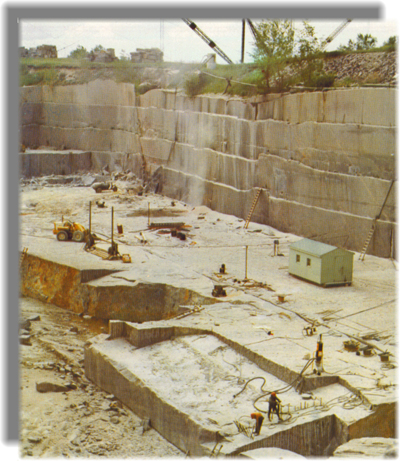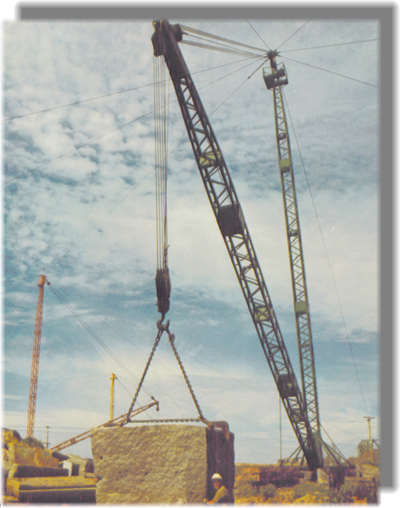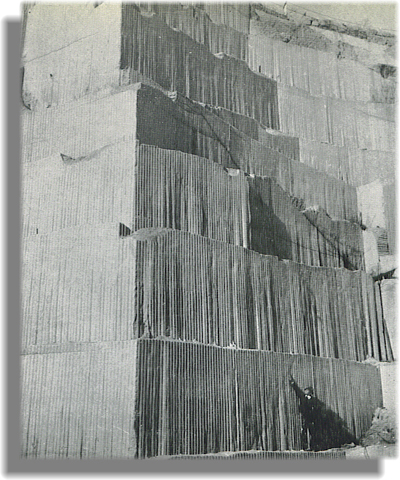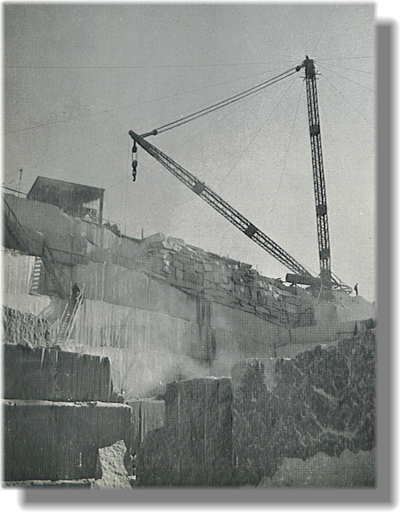|

It all begins here on the floor
of the quarry where man and
machine break out blocks
of granite
weighing from
30 to 50 tons.
|

A block weighing 35 tons...
Yes, 70,000 pounds is being
hoisted out of the quarry,
ready
for processing.
|
|
CLASSIFICATION OF ROCKS
There are 3 basic
types of rock:
1-IGNEOUS (such as granite and gabbro)
2-SEDIMENTARY (such as dolomite and sandstone)
3-METAMORPHIC
(such as marble and quartzite)
IGNEOUS rocks were produced by the hardening of molten material called "magma" deep
below the earths surface. This cooling process took place not unlike the solidification of hot metals on cooling from a molten
condition. This change from a liquid to a solid state is known as "chrystallization." If the change took place rapidly, the
grains are usually smaller than they are if the rock formed more slowly. In general IGNEOUS rocks like granite and gabbro
are far superior for memorial work because of their greater hardness, greater strength and low absorption of water. This gives
the memorial the ability to withstand weathering and retain a polished finish after many years of exposure to the elements.
Over 5,000 years ago the Egyptians carved their history in granite. It is as ledgible today as it was when it was first written.
|
|

110 feet deep in a quarry near
St. Cloud, Minnesota
|

A 100 ton Boom Derrick
with a safety factor of 5.
Maximum lift is 500 tons.
|